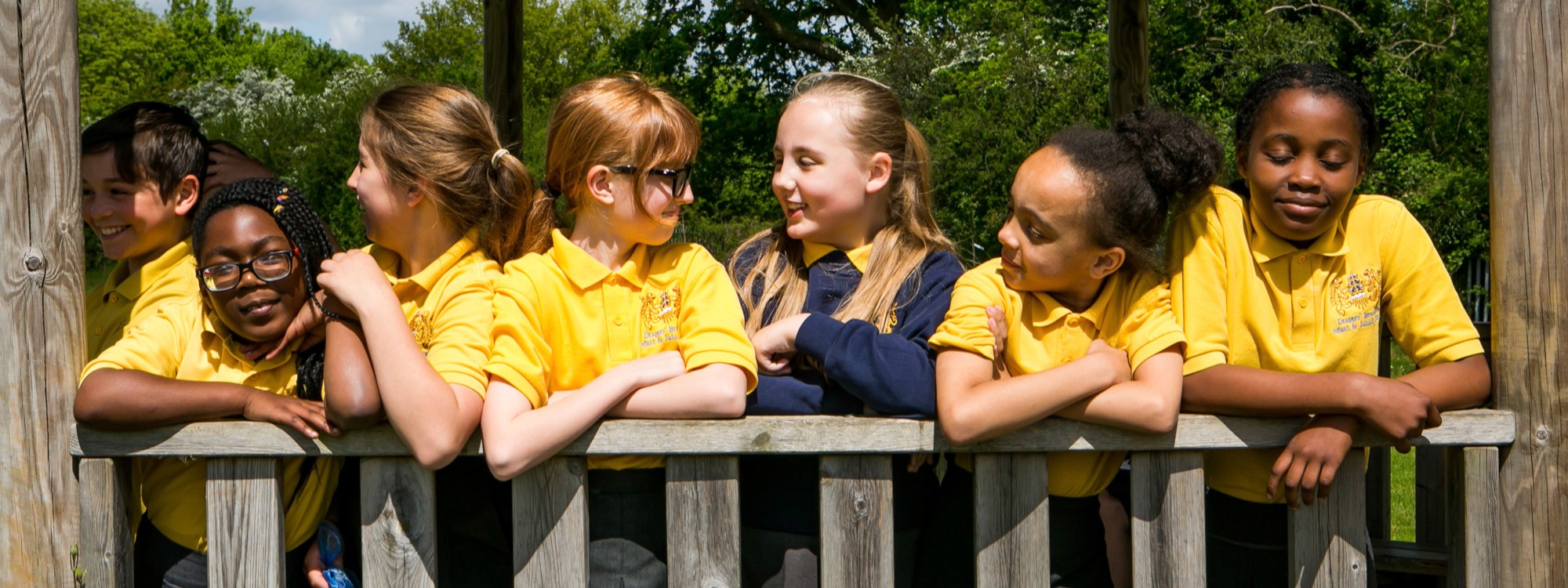Behaviour
Drapers’ Brookside Infant and Junior schools are committed to creating an engaging environment where exemplary behaviour is at the heart of productive learning.
Everyone is expected to maintain the highest standards of personal conduct, to accept responsibility for their behaviour and encourage others to do the same. We believe that good vehaviour can be taught by direct and intentional teaching of positive behaviours, integrated throughout the curriculum, as part of an overall objective to raise the quality of teaching and learning.
As a matter of course, all staff within the school use kindness, encouraging language, praise and positive reinforcement both in lessons and around school. This ensures that positive behaviour is instantly recognised and positively rewarded. Strategies agreed are applied by all and consistency is key.
We recognise that parents and carers are the most important people in a child’s life. They provide a child’s fundamental needs and have the ability to influence and motivate their children. As a school we expect the support and cooperation of parents to help children overcome behaviour problems, in the same way we would expect support for academic or motivational barriers. Involving parents is paramount to the success of our behaviour and achievement policy. Drapers’ Brookside’s SLT, SENCO and Learning Mentors are on hand to provide additional support and guidance.
At Drapers’ Brookside Infant and Junior Schools, we believe that:
- Every child has the right to learn in a positive, safe environment
- Positive behaviour will be celebrated and reinforced through a rewards system
- Behaviour is a response; we believe those responses can be modified and we will work
with children to cultivate positive behaviours - Close cooperation between home and school is critical
- Quality First Teaching and learning can contribute significantly to pupil behaviour
All adults will:
- Establish a friendly, positive, supportive relationship with the children in their care
- Provide a well-ordered structure in which all are fully aware of the behaviour expectations
- Make sure, wherever possible, that children are engaged in purposeful learning that they understand
and can complete - Reward positive behaviour with attention and praise
- Identify when behaviour issues are likely to arise and, where possible try to divert or modify the pupil’s behaviour before there is a need to give sanctions
- Negotiate rules and sactions with their class and apply them clearly, firmly and fairly
- Communicate positive and negative aspects of a child’s behaviour to parents
- Alert SLT and parents immediately if serious behaviour problems occur
- Use an appropriate tone of voice and volume that matches the behaviour
All Children will follow the Drapers’ Brookside Infant and Junior Schools rules:
- I will allow myself and others to learn
- I will keep my hands and feet to myself
- I will show respect to the people and property around me
- I will use positive language
- I will listen and follow instructions given by an adult at school
The safety of children is paramount, so children:
- Must never leave the school premises without permission from a teacher
- Must not enter the kitchen or staff resource rooms unless accompanied by an adult
- Must avoid playing in a way which may harm themselves or others
- Must not stay in an unsupervised area
- Must walk through the school building, not run or skip
- Must take care when using the external stairs and not use the staircases unless instructed to
do so by an adult
The use of force to control or restrain pupils
The ethos of the school is that the control of pupils should be based on good professional relationships between the staff and pupils. However, circumstances may arise in which staff have to use reasonable force to control or restrain pupils, this would usually be if the child is in danger of hurting him/herself, those around them or causing damage. Members of staff will only use reasonable force to control or restrain pupils when all other alternatives have been or cannot be tried. These alternatives are outlined in the school’s policy on Discipline and Standards of Behaviour, and parents can be supplied with a copy of this on request.
Class Dojo
Green Class Dojos
Each class will use class dojo to positively reward children in their work, attitude and movement around the school. The following Green dojos will be used in each class:
|
EYFS |
Key Stage 1 and 2 |
|---|---|
|
Listening on the carpet Being a positive role model Enjoying challenge Joining in Perseverance Positive attitude Showing respect Taking pride in your work Being helpful Being a good friend Team work |
Active listening Being a positive role model Enjoying challenge Participating Perseverance Positive attitude Showing respect Taking pride in your work Working collaboratively |
Red Class Dojos
Red Class dojos will be given when children do not make the right choices and display an unwanted behaviour. Red dojo points do not minus from the green positive dojo points. Red dojo points will be reset at the end of each week. After a certain amount of red dojo points have been reached the following consequences will apply:
|
Number of Reds |
What we do now |
|---|---|
|
5 |
5 minutes of play missed (Class teacher) |
|
10 |
Whole playtime missed (Class teacher) |
|
20 |
Whole lunchtime missed (Class teacher/SLT) |
|
30 |
No plays outside for a day (Class teacher/SLT) |
|
40 |
Internal exclusion (SLT/Learning Mentor) |




